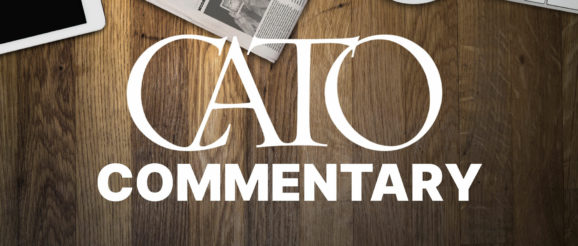Homeschooling, Choice, and Innovation: A Response

Homeschooling continues to be a popular option for many U.S. families as they seek alternatives to conventional mass schooling. In my September briefing paper for Cato, I argued that homeschoolers should generally support the expansion of education choice programs, whether or not they personally benefit from such programs, because an environment of education choice empowers parents to consider a variety of options for their children, including homeschooling.
I spotlighted four states, Ohio, Florida, Wisconsin, and North Carolina, that have some of the most robust education choice programs in the country, and that also demonstrated increases in the homeschooling population while the K-12 public school population declined.
My briefing paper was clearly correlational and suggestive from the beginning. I made no causal claims and no indication that this brief was in any way an exhaustive report or deep statistical analysis. Indeed, this was my thesis: “This paper offers an overview of homeschooling trends and a glimpse at the current homeschooling population while arguing that educational freedom creates momentum for families to seek alternatives to conventional mass schooling.”
Despite the obvious nature of my 8-page briefing paper, Robert Kunzman at Indiana University wrote a 10-page critical response, stating that my “report suggests a causal link between greater private education choice and continued homeschooling growth and innovation.”
Nothing in my paper suggested “a causal link,” and Kunzman is correct to acknowledge, as I did, that collecting data on homeschoolers is challenging. The four states I selected are known to be four of the most aggressive school choice states, and they also track and report state-level data on homeschoolers—something many states do not do at all.
As I wrote in my briefing paper: “Certain states with robust private education choice programs, however, are seeing particularly high growth in homeschooling compared with overall public school enrollment.”
In his critique, Kunzman explains that while I mentioned New Hampshire’s unique tax-credit scholarship program and offered an example of how homeschooling is supporting education innovation in the state, New Hampshire is not included in my analysis.
I did not include New Hampshire because its education choice programs are meager compared to other states, and its state-reported data on homeschooling are flawed. Kunzman acknowledges this flaw, writing: “During the three-year period the report examines, their official homeschool numbers have actually declined from 5,914 to 2,875, but the state notes that ‘due to reporting changes, the data in this report should not be compared to prior years for trend data.’”
According to Michelle Levell, who runs the non-profit organization School Choice for New Hampshire, the reporting change resulted in data on homeschoolers registering in a given year, and not the cumulative total of all homeschoolers in the state.
As Levell writes: “In the DOE’s reading, ‘shall maintain a list of all home education programs’ does not mean a running total.” The New Hampshire state-level data on homeschoolers are unreliable and should not be cited in any meaningful analysis on homeschooling rates.
Kunzman also challenges my claim that homeschooling is driving education innovation. He writes:
Educational options for homeschoolers have indeed proliferated as their numbers have grown, and many of these—such as umbrella academies, private learning centers, and family-run learning cooperatives—enable students to customize their educational experiences in a variety of creative ways. If this is what the report means by ‘a key trend’ (p. 3), then plenty of anecdotal evidence supports this limited claim. But such innovation is hardly unique to homeschooling.
Kunzman explains that innovation is also occurring in public and private schools, but he misses my main point. I argue that the type of innovation that is occurring through homeschooling, due to its flexibility and opportunity to bypass restrictive compulsory schooling statutes, is the type of disruptive innovation that will fundamentally disentangle education from schooling.
As I wrote in my briefing paper: “By shifting power to families, education choice creates greater variety in how young people learn and triggers education entrepreneurship and experimentation. With its legal flexibility, homeschooling provides an ideal incubator for educational ingenuity.”
In my brief, I suggest that homeschoolers benefit from an environment of education choice even if they are not included in a choice mechanism because as education options expand, more families will likely consider homeschooling and more resources for homeschoolers will then sprout.
In what is perhaps the most peculiar rebuke of my paper, Kunzman asserts: “Creating more homeschoolers, however, isn’t necessarily a primary goal of current homeschoolers; certainly many of the homeschoolers I’ve interviewed over the past fifteen years would not want to see more parents homeschooling just for the sake of increased numbers, if those parents are not deeply committed to doing it well.”
Whether or not a goal of current homeschoolers is to cultivate more homeschoolers, the reality is that as the population of homeschoolers expands in a given area, there will likely be more abundant and diverse resources for homeschooling families. Some of these resources would benefit current homeschooling families who would be able to take advantage of more activities, classes, and social opportunities.
But many of these resources will likely involve home-based micro-schools, hybrid homeschooling programs, learning centers, and other innovations that look nothing like traditional homeschooling but that meet the needs of many more families who would otherwise not have access to this education option. The growth of homeschooling widens opportunities for both current homeschooling families and new homeschooling families who gain access to a different way of learning.
I am delighted that my September briefing paper sparked interest and dialogue about the intersection of homeschooling, choice, and education innovation. Homeschooling families have long advocated for the right to opt-out of conventional schooling, create new learning approaches, and choose the educational path that works best for them. They should be on the front lines of supporting expanded educational freedom and choice for all families.
